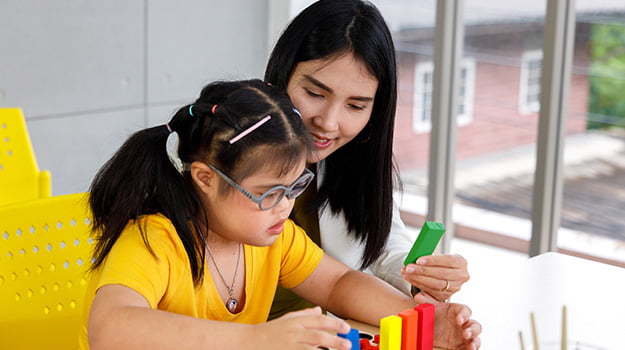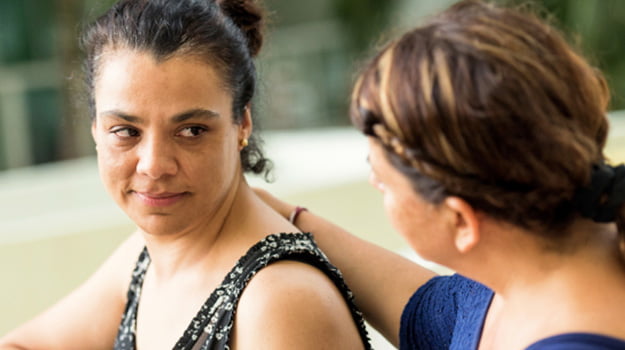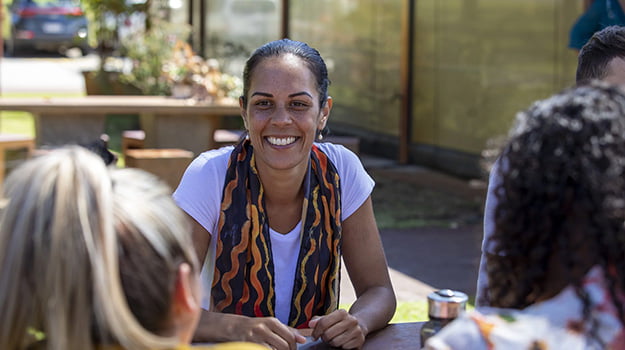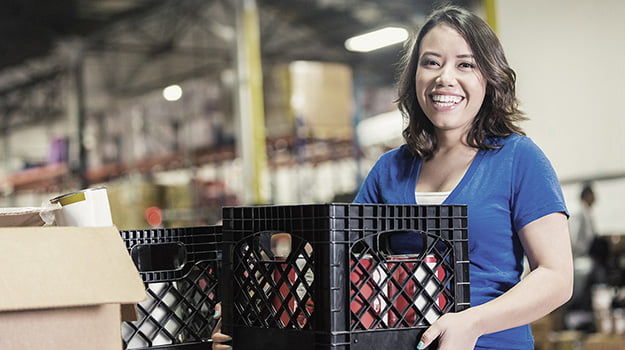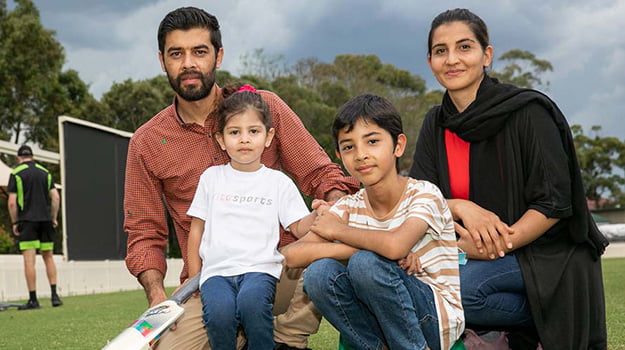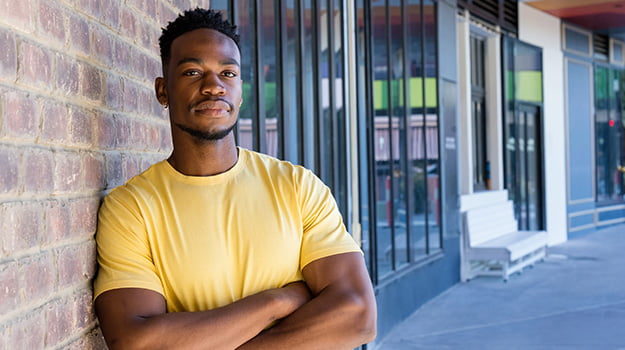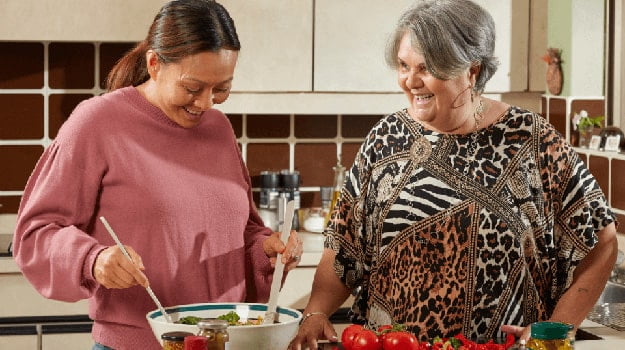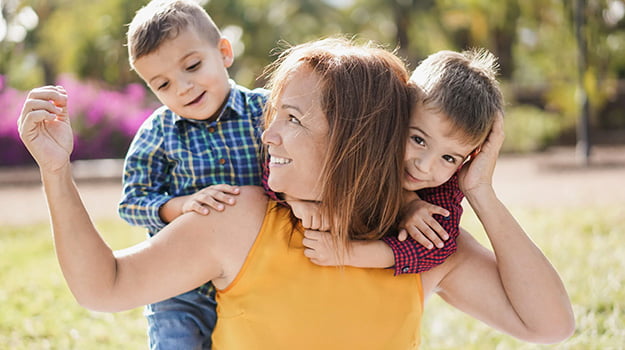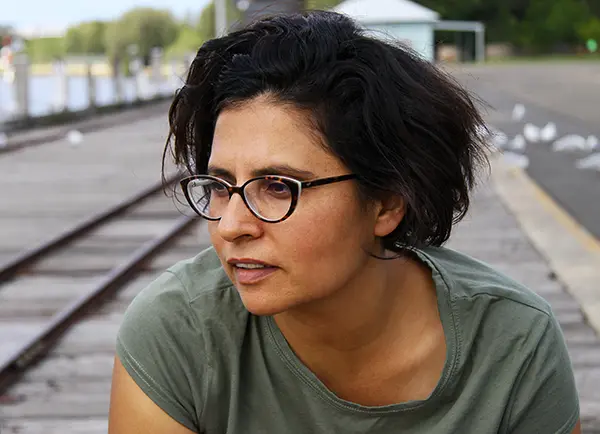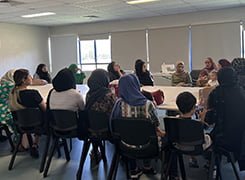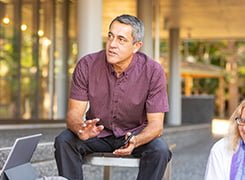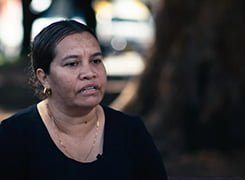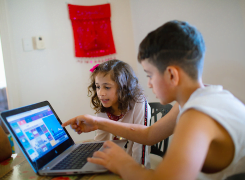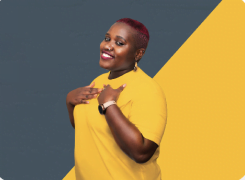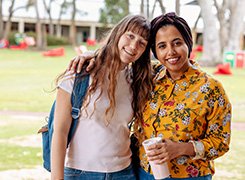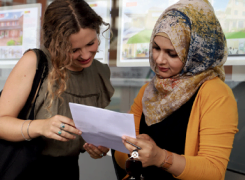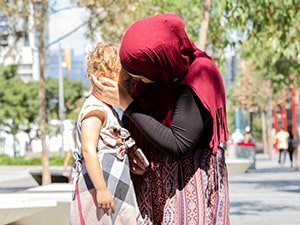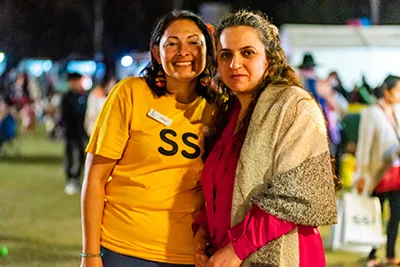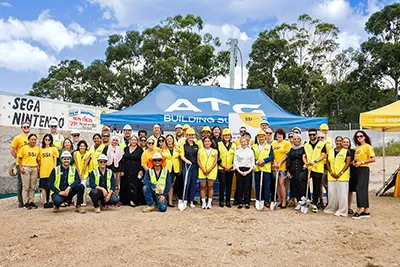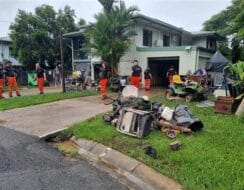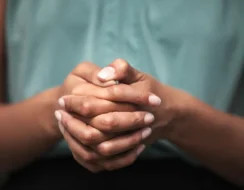09 Nov 2024
StoriesSara’s Story
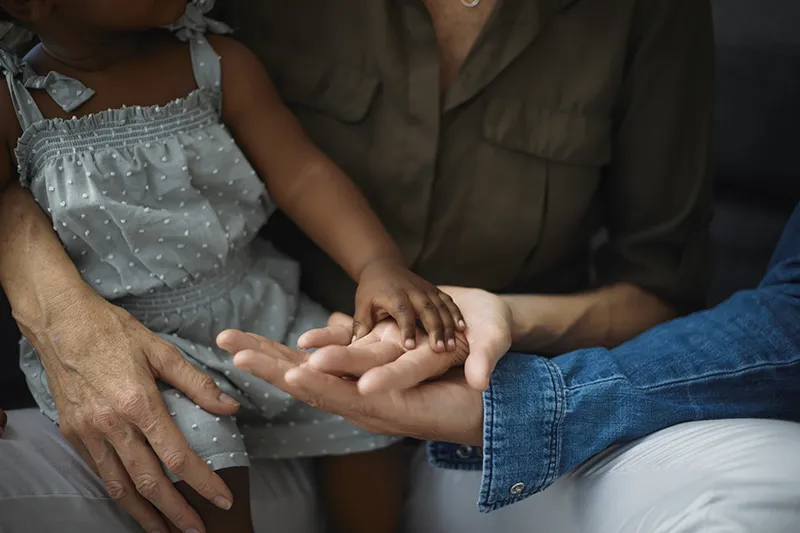
Community workers filling the gaps when it comes to women experiencing domestic violence
Sara* is a dedicated community worker who has spent much of her young adult life in various social work roles. Recently, her own cultural background has proven life-changing for some of the female clients in her care – many of whom are experiencing domestic violence and need someone to talk to in-language.
“They don’t come asking for support directly,” she says. “Someone might talk to you about their situation at home seeking support, and then, through the stories they’ve shared with me, I realise they’re experiencing abuse.”
In the three short months Sara has been in her new role helping newly arrived families settle, Sara says that two to three of her five family intakes have already indicated domestic violence, identifying a major gap in support for these women.
New to Australia, women are often unfamiliar with their legal rights, the process of reporting violence, and the support systems available to them. Meeting someone who speaks their language can make all the difference.
Trust established through shared background
As part of Sara’s role, she visits families in their own homes. She recognises that this safe environment encourages them to share their experiences.
“They feel secure enough to open up and share what they’re going through,” she says. “It’s not out in public or an institution where they might feel observed.”
“Speaking the same language helps them feel at ease and it also allows me to build a stronger relationship with them,” she says.
Sara recalls a client who recently shared that she was being physically abused by her husband.
“She saw me as someone who shared her background and spoke the same language,” Sara says. “She asked, ‘Is there any way you can support me? You’re my sister. You understand how to help me.’”
Sara says many of the women who come to her and her colleagues aren’t ready to make a formal report, yet they are in crisis.
“They tell me because they want to see how I can support and protect them within my capacity without opening a formal case,” she says.
“Fearing the repercussions, they wonder, ‘If I involve someone else, will that put me at risk? Now I need to provide this paperwork and documentation. Why is this needed?” Sara says. “The process of getting mainstream support often becomes too overwhelming.”
“Instead, they want to rely on me alone for help. However, my capacity is limited. I’m not a specialist support worker, and I can’t address their immediate safety needs without formal training,” she says.
Despite this, Sara emphasises her moral responsibility around receiving disclosures.
“I have a duty of care. I must do everything I can to support a woman and her children if she has disclosed or is in crisis.”
The bias and barriers of language
For the women who do try to access mainstream services, Sara points out the challenges with on call interpreters one of many barriers impacting CALD women who are experiencing domestic violence.
“One moment, a woman might be in the middle of disclosing her experiences through an on-call interpreter and, the next minute, the line disconnects. She then faces a long wait to be assigned another interpreter. You can imagine the toll that takes.”
Sara also recalls an instance where she witnessed a male interpreter misinterpret her female client’s disclosure of physical abuse, distorting her words with an obvious bias. She notes that this situation is common.
“We need better training for interpreters. They need to be trauma-informed and specialised in domestic violence to better support women accessing these services.”
The need for greater investment
Sara’s role extends far beyond traditional community support. She acts as a crucial bridge between the service provider and her vulnerable clients.
While she continues to go beyond her paid role to potentially save the lives of the women who are falling through the cracks, Sara’s ability to perform her job is being impacted.
“When women are at risk, I have to prioritise supporting them, which often requires me to stop what I’m doing and affects my overall capacity,” she says.
“We need more people like me who are supporting these women. We need to have greater flexibility in our roles and must expand the scope of our community support services.”
Sara was interviewed as part of SSI’s support of 16 Days of Activism Against Gender-based Violence. This year, we’re calling on more investment for first-line responders like Sara to be better equipped to support women experiencing family, domestic and sexual violence.
*Name/s changed to protect privacy and safety.

